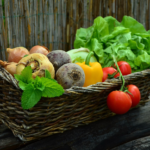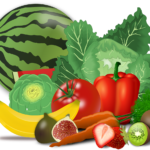Have you ever been munching on a bowl of popcorn and accidentally bit down on an unpopped kernel? The sudden jolt of pain can be enough to make anyone wonder if it’s safe to eat popcorn kernels at all.
As lovers of this classic snack, we understand the importance of knowing the potential risks associated with eating popcorn kernels. Popcorn is a timeless treat enjoyed by many, but few people know about the science behind those fluffy white puffs.
Each kernel contains a small amount of moisture inside its starchy interior. When heated, that moisture turns into steam and builds up pressure until the kernel explodes into deliciousness. While most kernels pop successfully, there are always a few stubborn ones left behind that remain hard and uncooked.
These unpopped kernels are known as ‘old maids’ or ‘widow makers,’ and they pose potential risks for anyone who accidentally bites down on them while enjoying their favorite snack.
Key Takeaways
- Popcorn kernels can pose potential risks such as tooth damage, digestive issues, and choking if not consumed carefully.
- Popcorn kernels should be stored properly in an airtight container at room temperature, away from moisture and heat sources.
- Proper cooking techniques should be followed, and safety precautions should be taken when using any type of equipment.
- Popcorn can be a safe and healthy snack option when consumed in moderation and in combination with other healthier snack alternatives.
The Science Behind Popcorn Kernels
You’re probably wondering why those tiny popcorn kernels can turn into such a delicious snack, but let’s talk about the science behind it!
First of all, have you ever taken a closer look at the anatomy of a popcorn kernel? If you do, you’ll notice that each kernel has an outer shell called the pericarp and a small droplet of water inside. The water is what makes popcorn pop!
So how does the popping process work? When heat is applied to the kernel, the water inside turns into steam and creates pressure. As this pressure builds up, it eventually causes the pericarp to rupture and release the starchy contents inside.
This sudden release of pressure causes the fluffy white snack we know as popcorn. Understanding this chemistry helps us appreciate why those little kernels pack such a big punch!
Potential Risks of Eating Popcorn Kernels
It’s important to be cautious when snacking on popcorn kernels, as they can pose potential risks if not consumed properly. One of the biggest risks of swallowing popcorn kernels is the dental danger that comes with it. Biting down on a hard kernel can cause a tooth to crack or chip, leading to costly dental procedures.
Additionally, consuming large amounts of unpopped kernels can also lead to digestive issues. These hard objects can be difficult for the body to break down and pass through the system, potentially causing discomfort or even blockages in some cases.
To avoid these risks, it’s recommended that individuals take their time when eating popcorn and be mindful of any potential hazards such as unpopped kernels.
Cooking Popcorn Kernels Properly
To ensure a satisfying snack, make sure to properly cook your popcorn in order to avoid any potential dental or digestive issues.
One important factor to consider is the storage of your popcorn kernels. It’s best to store them in an airtight container at room temperature, away from moisture and heat sources. This will help prevent the kernels from becoming stale or moldy, which can cause problems when cooking.
When it comes to cooking techniques, there are several options available. One popular method is using a stove-top pot with oil and a lid. Make sure to use enough oil so that all the kernels are covered and shake the pot frequently while cooking to prevent burning.
Another option is using an air popper, which requires no oil but may produce less flavor. Whichever method you choose, be cautious when handling hot popcorn and never eat unpopped kernels as they can damage teeth or cause digestive issues.
Tips for Avoiding Unpopped Kernels
When it comes to avoiding unpopped kernels, there are a few key tips that we’ve found helpful. Firstly, choosing high-quality popcorn kernels can make a big difference in the number of unpopped kernels you end up with.
Secondly, storing your popcorn kernels properly can help ensure they stay fresh and don’t dry out, which can lead to more unpopped kernels.
And finally, using the right equipment – such as an air popper or stovetop popping pan – can also help reduce the number of unpopped kernels. As always, it’s important to exercise caution when handling hot equipment and be sure to follow all instructions carefully.
Choosing High-Quality Popcorn Kernels
If you’re looking for the best popcorn experience, try choosing high-quality kernels that have been specifically grown and packaged for popping. Popcorn kernel varieties can vary greatly in terms of taste, texture, and popping success. Some popular varieties include white, yellow, and mushroom kernels.
It’s important to read the label carefully and choose a variety that is suited to your tastes. When it comes to buying high-quality popcorn kernels, there are several options available.
One of the best places to buy popcorn kernels is from a local farmer’s market or specialty store. These retailers often offer fresh, locally sourced products that have been carefully selected for their quality. Another option is to purchase online from reputable sellers who specialize in gourmet popcorn products.
However you choose to purchase your kernels, be sure to look for brands that have a reputation for producing consistent results with minimal unpopped pieces or burnt bits. With a little bit of research and some careful shopping, you can enjoy delicious, perfectly popped popcorn every time!
Storing Popcorn Kernels Properly
Make sure you’re storing your high-quality popcorn kernels properly to keep them fresh and ready for popping. Proper storage is essential in maintaining the quality of your popcorn kernels, especially if you plan on using them after a few weeks or months.
The best way to store them is in an airtight container that’s kept away from moisture, heat, and light. This will help prevent any unwanted moisture or humidity from creeping in and spoiling the kernels. The shelf life of popcorn kernels can vary depending on how they’re stored.
If stored properly, they can last up to two years without losing their quality or flavor. However, if left out in the open air or exposed to heat and humidity, they can quickly go stale and lose their freshness. To ensure that your popcorn kernels are always fresh and ready for popping, make sure you store them correctly by keeping them sealed tightly in an airtight container in a cool dry place away from any sources of heat or moisture.
Using the Right Equipment
To ensure you have the best popcorn experience, using the proper equipment is crucial. While it may be tempting to simply pop kernels in a regular pot on the stove or in the microwave, investing in a popcorn machine can make all the difference.
Not only does it produce up to 45 cups of popped kernels per hour, but it also ensures that your kernels are cooked evenly and thoroughly. However, it’s important to take safety precautions when using any type of equipment.
Make sure to read and follow all instructions carefully, including cleaning and maintenance guidelines. Keep children and pets away from the machine while it’s in use, and never leave it unattended while popping.
With the right equipment and safety measures in place, you can enjoy delicious popcorn without any worries.
What to Do If You Accidentally Eat an Unpopped Kernel
We need to be cautious when it comes to accidentally eating an unpopped kernel of popcorn. One of the potential risks is choking, which can lead to serious health complications.
It’s important to recognize the symptoms of choking and seek immediate medical attention if necessary.
Recognizing Symptoms of Choking
If you’re ever in doubt, remember that you can recognize symptoms of choking by watching for difficulty breathing or coughing. If someone is choking and cannot cough or breathe normally, it’s important to act quickly and provide first aid for choking incidents.
To help someone who is choking, follow these steps:
-
Encourage the person to keep coughing to try to dislodge the object.
-
If coughing doesn’t work, perform the Heimlich maneuver by standing behind the person and wrapping your arms around their waist. Make a fist with one hand and place it just above the navel, then grasp your fist with your other hand and give quick upward thrusts until the object is dislodged.
-
If the person becomes unconscious, begin CPR immediately while waiting for emergency medical services to arrive.
Remember that recognizing symptoms of choking and knowing how to respond can help save a life. Stay calm and act quickly if you suspect someone is choking.
Seeking Medical Attention
Don’t hesitate to seek medical attention if someone’s choking and the object wasn’t dislodged. This could lead to serious complications. It’s important to know when to seek medical help, especially for choking incidents.
If the individual’s still coughing or choking after several attempts at performing the Heimlich maneuver, call emergency services right away. Keep an eye out for symptoms that may indicate a more serious problem. These include difficulty breathing, wheezing or noisy breathing, chest pain or discomfort, blue lips or skin color changes.
These signs can be warning signals of a blocked airway that requires immediate attention from professionals. Remember that even small objects like popcorn kernels can become life-threatening hazards when lodged in the throat. So don’t take any chances and get help right away if you suspect someone’s choking.
Popcorn Kernel Safety for Children
When it comes to children and popcorn kernel safety, we always prioritize supervision during snack time. It’s important for parents or guardians to be present while their kids are munching on popcorn to prevent choking hazards.
However, if you prefer choosing safe snack alternatives, there are plenty of healthy options that don’t pose any risks.
Lastly, educating your children on the dangers of unpopped kernels is crucial in preventing accidents. Discussing the importance of chewing food properly and avoiding swallowing large pieces can go a long way in keeping your little ones safe during snack time.
Supervision During Snack Time
Always supervise snack time, especially when enjoying a bag of popcorn with your loved ones – you never know when a kernel might sneak up on you! Here are some things to keep in mind during snack time:
-
Supervision importance: It’s essential to keep a watchful eye on young children while they eat popcorn. They can easily choke on kernels or accidentally inhale them, leading to respiratory problems. Therefore, it’s crucial to stay close and ready to assist if needed.
-
Proper portioning: Popcorn is low in calories and high in fiber and antioxidants, making it an excellent snack option for adults. However, it’s essential to limit the amount that children consume since they have smaller airways than adults do.
-
Safe snacking practices: Never give your child unpopped kernels or let them stick their hands into a hot popcorn bag. Additionally, discourage them from running around while eating as this can lead to choking or inhalation accidents.
-
Emergency preparedness: Accidents happen despite our best efforts; be prepared for any emergencies by knowing CPR techniques and keeping emergency contacts handy at all times.
Always prioritize safety during snack time, and follow these simple guidelines for an enjoyable experience without any mishaps!
Choosing Safe Snack Alternatives
If you’re looking for healthier snack options, there are plenty of delicious alternatives to choose from. One option is fresh fruits and vegetables, which can provide a variety of nutritional benefits such as vitamins and fiber.
Another option is nuts or seeds, which contain healthy fats and protein that can help keep you feeling full longer.
It’s important to consider the nutritional value of snacks when choosing alternatives to popcorn kernels. Many pre-packaged snacks may be high in sodium, sugar, or unhealthy fats. Be sure to read labels carefully and opt for whole food options whenever possible.
By making informed choices when it comes to snacking, you can ensure that your body gets the nutrients it needs while still enjoying tasty treats.
Educating Children on Popcorn Kernel Safety
To ensure your child stays out of harm’s way, it’s important to educate them on how to handle popcorn kernels safely. One of the most important things you can do is supervise your child while they are eating popcorn.
This will allow you to make sure that they are chewing their food properly and not trying to eat any whole kernels. Teaching proper chewing techniques is also essential in preventing choking hazards.
Encourage your child to take small bites and chew their food thoroughly before swallowing. Additionally, make sure they know not to put too many kernels in their mouth at once.
By educating your child on the importance of supervision and proper chewing techniques when eating popcorn, you can help prevent any potential injuries or accidents from occurring.
Frequently Asked Questions
How do popcorn kernels compare to other snack foods in terms of safety?
When considering snack safety, it’s important to examine popcorn kernel processing and potential contamination. While any food can carry risks, proper handling and preparation can minimize them. Always follow package instructions and discard any unpopped kernels.
Can you get sick from eating too many popcorn kernels?
Eating too many popcorn kernels can lead to digestive issues and potentially choking hazards. It is important to be cautious when snacking on them. However, only 2% of emergency room visits for choking involve popcorn, so it’s generally safe in moderation.
Are there any benefits to eating popcorn kernels?
Eating popcorn kernels can offer benefits like fiber, antioxidants, and whole grain nutrition. Taste and preparation vary depending on the method used. However, caution should be taken to avoid any potential choking hazards.
How do you properly store popcorn kernels to ensure safety?
To ensure safety, proper storage of popcorn kernels is crucial. Keep them in an airtight container away from moisture and heat to maintain their shelf life. Avoid using old or moldy kernels.
Can microwave popcorn be just as safe as stovetop popcorn when it comes to unpopped kernels?
When it comes to unpopped kernels, microwave popcorn may not be as safe as stovetop. Potential health risks include choking and tooth damage. Always follow package instructions and use caution when consuming.
Conclusion
In conclusion, while popcorn kernels are a tasty and popular snack, it’s important to be cautious about how they’re prepared and consumed.
As we’ve learned, there are potential risks associated with eating unpopped kernels, such as choking or dental damage. However, by cooking the kernels properly and taking steps to avoid biting into an unpopped kernel, these risks can be greatly reduced.
It’s always better to err on the side of caution when it comes to our health and safety. So next time you reach for a bowl of popcorn, remember to take the necessary precautions to ensure that you enjoy your snack without any unwanted surprises.
As the saying goes, "better safe than sorry."By following these guidelines and being mindful of how we prepare and consume popcorn kernels, we can continue to enjoy this delicious treat while minimizing any potential risks.




